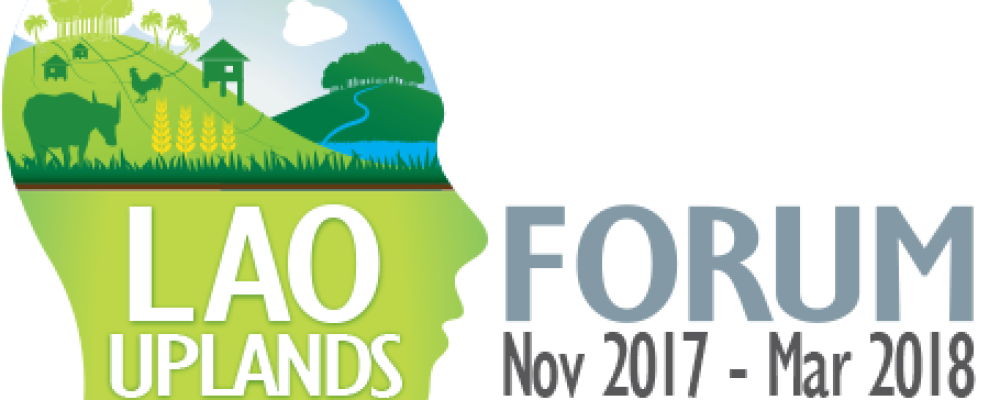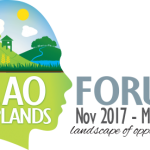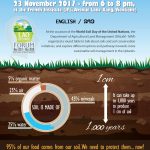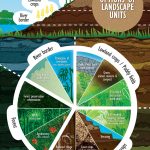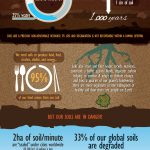Context
Changing Lao Uplands
The uplands of Lao PDR are defined as an area of multi-dimensional marginality, characterised by remoteness, diverse ethnicity, language, and culture, with a comparatively high level of poverty, and livelihoods dominated by pockets of food insecurity (Uplands Development Strategy 2016-2025). Covering about 70 percent of the country territory, the Lao Uplands are characterized by slopes greater than 20 percent, elevation above 200 m.a.s.l., rugged dissected terrain and narrow valleys. Traditionally production has focused on subsistence farming and livestock, with 90 percent of upland households being dependent on agriculture and natural resources for their livelihood.
But in the last decades, the Lao Uplands have gone through unprecedented growth. They changed from a remote and economically backward area to a region with increasing access to regional markets, infrastructure and basic services. Upland livelihoods are being transformed from subsistence-based to market-oriented. The main underlying factors are “policy push” from government, aimed at reducing poverty and stabilizing livelihood systems (land allocation, focal area development); and, “market pull” from increased regional demand for Lao agriculture products. Specific Government of Lao PDR (GoL) policies contribute to the intensification of agriculture through the promotion of land-based foreign direct investment (FDI) in upland areas; and, improved access to regional markets.
But these recent changes also had negative consequences on:
- livelihoods with e.g. pressures put on villagers to make land available for investment and agriculture development or difficulties for the poor to adapt to rapid changes and to enter into commercial activities, and
- landscapes with e.g. unsustainable land use practices, land degradation and deforestation that lead to depletion of natural resources and erosion of soils and biodiversity.
The overarching question the Lao Uplands Forum will address is therefore:
Are the Lao Uplands on the right path… towards a sustainable development?
This question will be broken down into more specific questions and/or burning issues that will emerge during the consultation process. They may point to the drivers of the recent changes, and their socioeconomic and environmental impacts; they may question land tenure security and capacity of upland people to seize economic opportunities; they may propose policy instruments and intervention mechanisms that should be mobilized to put back the Uplands on the ‘right path’.
Why a Lao Uplands Forum now?
From 2011 to 2015, the Northern Uplands Development Programme (NUDP) supported a long series of consultations that involved a large range of “uplands stakeholders” and led to the Lao Uplands Development Strategy and Programme. This document was officially endorsed by the Ministry of Agriculture and Forestry in 2016 and then entered into action. As the NUDP comes to an end in December 2017, it is important to take stock of the lessons learnt over the decade since the last Lao Upland conferences that were held in Luang Prabang in 2004 (on Poverty Reduction and Shifting Cultivation Stabilization in the Uplands of Lao PDR) and in 2006 (on Sustainable Sloping Lands and Watershed Management). These two major events produced reference materials for upland development in the form of a sourcebook “Improving Livelihoods in the Uplands of the Lao PDR” published in 2005, and research proceedings in 2006. Since then many important discussions took place as part of the Sector Working Group on Agriculture and Rural Development that were supported by recent evidence from research and development initiatives.
As the Lao Uplands are under high pressure for change, there are competing visions for development of the Lao Uplands. On the one hand the development of agricultural production and other labour-intensive sectors is expected to lead to job creation and poverty reduction. In line with this vision, success of socio-economic development would be measured in terms of increased voice for people in development, and meaningful participation in local planning which can reduce malnutrition while sustaining income. Priorities would include bottom-up planning, food security from subsistence food production, agriculture and market development, local entrepreneurship, local value adding, and niche products unique to the Lao Uplands, to ensure sustainable development (UNDP, 2006). On the other hand, an emphasis on export of minerals, electricity, timber, and raw agricultural products may use much less labour, and could pose threats to the environment and resource base for the rural poor. The potential for poverty reduction in such a vision would depend on public expenditure allocations, the strength of public financial management, and work force skills. In this vision poverty alleviation is seen as a result from economic growth and the provision of employment opportunities (UDS, 2016).
Today, a consortium of projects, initiatives and institutions are convening the Lao Uplands Forum to (i) reflect on recent transformations and theirs impacts on upland populations, (ii) take stock of main lessons from past and on-going interventions, (iii) review policy options and (iv) develop a common vision of sustainable development direction. This process is expected to lead to a series of co-designed policy briefs that will become a reference for the next decade of implementation of the Lao Uplands Programme (UDP).
Convening agencies and participants
The Lao Uplands Forum is organized under the umbrella of the Sector Working Group on Agriculture and Rural Development (SWG-ARD) and is chaired by:
H.E. Dr. Phouangparisak PRAVONGVIENGKHAM, Deputy Minister for Agriculture and Forestry, Ministry of Agriculture and Forestry
H.E. Mrs. Claudine LEDOUX, Ambassador of France to Lao PDR
The organization committee is chaired by:
Mr. Khamsone Sysanhouth, Northern Uplands Development Programme, Ministry of Agriculture and Forestry
Mr. Matthieu BOMMIER, Agence Française de Développement, AFD Representative in Lao PDR
Participants in the forum are from government and non-government agencies, development practitioners, academics, and donors.
Organization
The Lao Uplands Forum will take the form of a series of consultation meetings organized from November 2017 to March 2018 and will culminate with the Lao Uplands Conference 2018 organized in Luang Prabang from 5 to 7 March 2018. Finally, the main messages that will come out of the forum will be discussed by government officers and development partners during a SWG-ARG meeting organized in March 2018.
Pre-conference meetings
A series of pre-conference meetings will be organized between November and February to discuss the main development challenges and opportunities for the Lao Uplands. Each meeting will be convened by a different group of projects and institutions that will use their own meeting format. The main outputs of the meetings will then be captured into short policy briefs and will structure the Lao Uplands Conference.
The Lao Uplands Conference
A call for contribution to the March conference will be sent to a large public, requesting evidence and experiences in relation with the different topics addressed in the draft policy briefs. Each contribution will be summarized as a poster. A compilation of selected posters will then be delivered to the conference participants.
The March conference will be organized around the ‘hot topics’ that will have emerged during the preparatory meetings. Each session will be introduced by the presentation of a position paper based on the result of the meeting held previously on the same topic. It will be followed by short presentations of experiences/evidences illustrated each by a selected participant poster. Then the presenters will take part in a discussion panel with a discussant who will take questions from the audience.
The discussions and debates of each session will contribute to a final version of the policy briefs to be published after the conference. Key messages will be synthesized and discussed with participants during the last day of the conference. All topics will also be discussed all along the forum period using social media (Facebook) and the forum website.
A knowledge fair will take place during the conference to present the experiences of different projects, with booths, videos, posters, and hands-on workshops, e.g. introduction to the use of role-play games in participatory approaches. Field trips will also be organized around Luang Prabang to present different Lao Uplands development initiatives. An award for best poster, video and booth will be delivered at the end of the conference.
Themes
The Lao Uplands Forum is organized around three main themes:
- Changing uplands: challenges and opportunities
- Engineering the transition towards agroecology
- Enabling environments for sustainable development
Sub-themes proposed here are indicative. They may evolve during the period of the forum depending on the outputs of the consultations during the pre-conference meetings.
More information here
The 1st round table meeting “Soil Carbon is what we need!” the 23 November 2017, concerns “CHANGING UPLANDS: challenges & opportunities” with a focus on how increasing the resilience of uplands systems, reintroducing diversity, and preventing land degradation.

